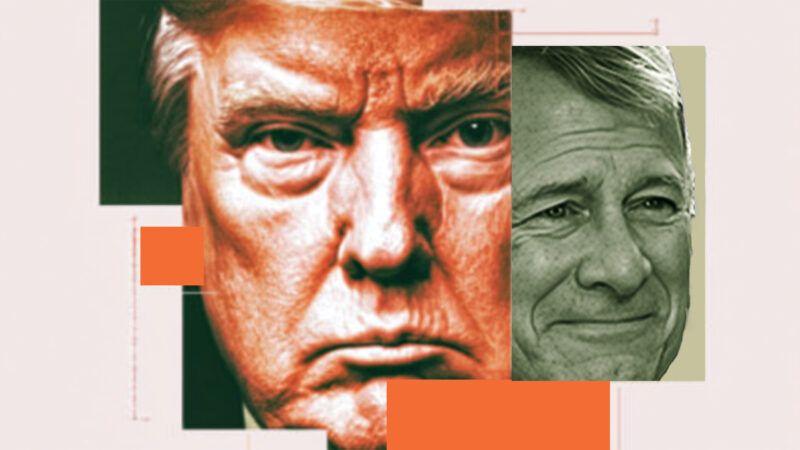Trump's Tariffs and John Roberts' Credibility
Learning Resources v. Trump will test both executive power and judicial fidelity.

Tomorrow, President Donald Trump will face the biggest legal test yet of his second term when the U.S. Supreme Court hears oral arguments in Learning Resources v. Trump, the case challenging the president's supposed authority to unilaterally impose tariffs without first receiving explicit authorization from Congress.
But tomorrow's case is also a big test for Chief Justice John Roberts. Just two years ago, Roberts led the Supreme Court in rejecting a similar claim of unilateral executive power by then-President Joe Biden. If Roberts now allows Trump to get away with the same kind of executive overreach that Roberts previously stopped Biden from getting away with, Roberts' credibility as a principled judicial arbiter will be sullied forever.
You’re reading Injustice System from Damon Root and Reason. Get more of Damon’s commentary on constitutional law and American history.
When the Supreme Court heard oral arguments in 2023 over Biden's efforts to cancel billions of dollars in federal student loan debt via executive action, the chief justice offered a revealing sneak peek into his thinking.
According to "your view," Roberts told Biden's solicitor general, Elizabeth Prelogar, "the president can act unilaterally" and "there was no role for Congress to play in this either." But "we take very seriously the idea of separation of powers and that power should be divided to prevent its abuse."
In fact, Roberts went on to say, "[I]f you're going to affect the obligations of that many Americans on a subject that's of great controversy…that's something for Congress to act on." And if Congress hasn't "acted on it," the chief justice continued, "then maybe that's a good lesson to say for the president, or the administrative bureaucracy, that maybe that's not something they should undertake on their own."
A few months later, Roberts made the lesson official in his majority opinion, which denied Biden's claims of executive power.
The chief justice now has the same reasons for teaching Trump the same lesson in tomorrow's case. Trump's tariffs also "affect…many Americans on a subject that's of great controversy" and thus also cry out for clear congressional sanction. Indeed, the constitutional authority "to lay and collect Taxes, Duties, Imposts and Excises," as well as the authority "to regulate Commerce with Foreign nations," all reside exclusively in the hands of Congress because they all appear exclusively in the text of Article I. (The president's limited and enumerated powers are spelled out separately in Article II.)
Yet the act of Congress that Trump has cited in purported support of his tariff regime—the International Emergency Economic Powers Act—makes no mention of the word tariffs, nor does it mention any synonyms for the word tariffs. Contrary to Trump's assertions, Congress has not "acted on it."
In the student loan case, the Biden administration dug up an unrelated federal law, squinted heavily at it, and found a pretext for the president's policy, an unlawful approach that was ultimately struck down by SCOTUS.
The Trump administration is guilty of the same squinting and pretexting here. If the chief justice really does "take very seriously the idea of separation of powers," Trump's tariffs should meet the same demise as Biden's student debt plan. We'll see.
